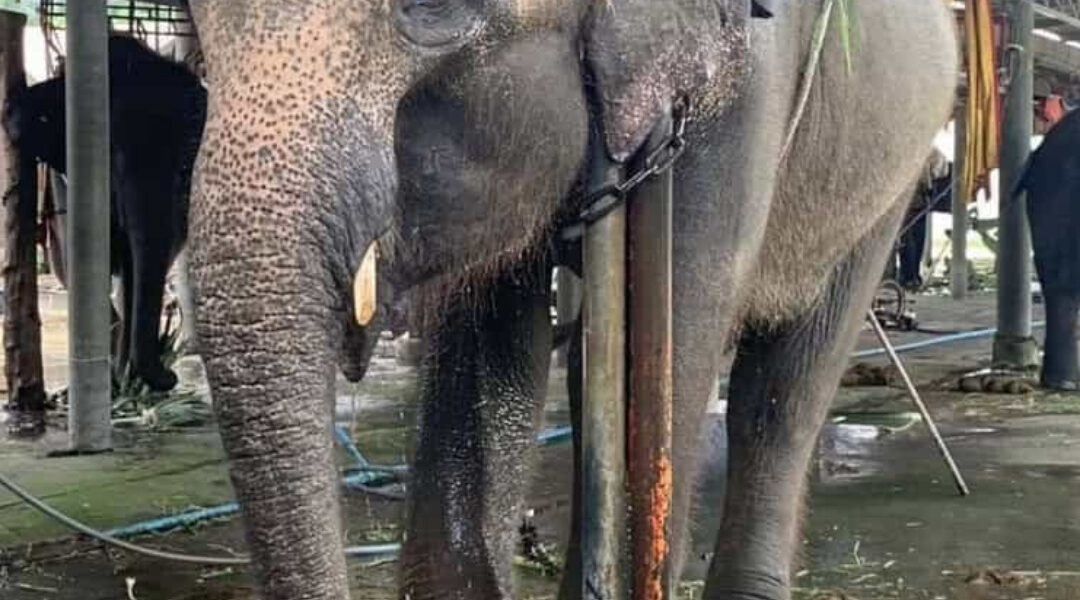The scene was almost unbearable to watch.

Three elephants—once majestic, powerful creatures—stood slumped in exhaustion at a Thai animal camp, their bodies so weak that the heavy chains around their necks appeared to be the only thing keeping them upright.
Their trunks hung low, their eyes dull with fatigue, as tourists at Chang Puak Camp in Ratchaburi quietly filmed the heartbreaking sight on June 15.
The footage spread quickly online: three lives reduced to shadows of what they once were.
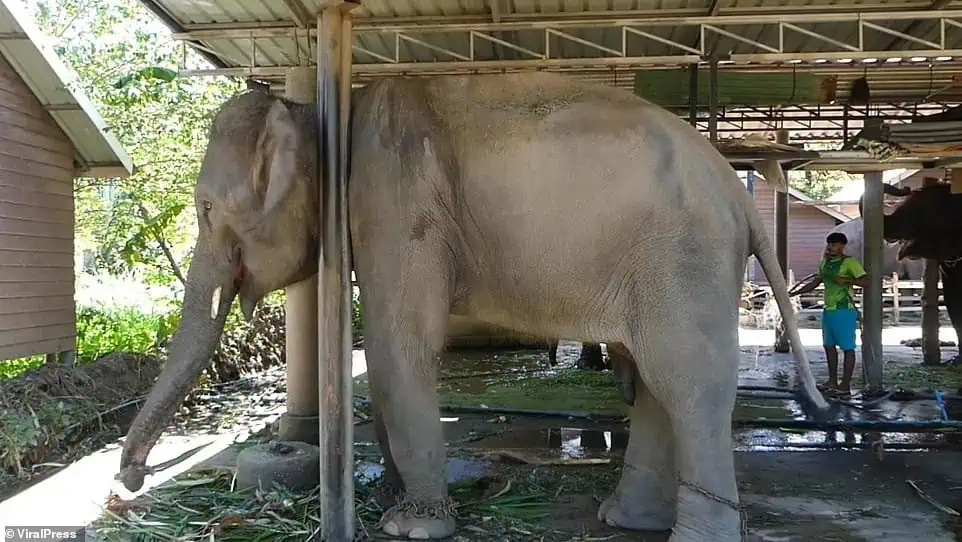
The elephants—Plai See Dor Thong Pool and Plai Boon Mee, both 15 years old, and Plai Kham Kaew, aged 45—had become victims of a silent crisis that has unfolded across Thailand since the pandemic.
Once kept busy by the booming tourist industry, these elephants were suddenly left idle, underfed, and uncared for when international travel came to a standstill.
For years, Thailand’s tourism industry had been the backbone of elephant camps across the country. Visitors would pay for elephant rides, photos, and performances, generating the income needed—albeit controversially—to sustain the camps. But when COVID-19 brought the world to a halt, that system collapsed overnight.
With no tourists, there was no money. And without money, there was no food, no mahouts, and no care.
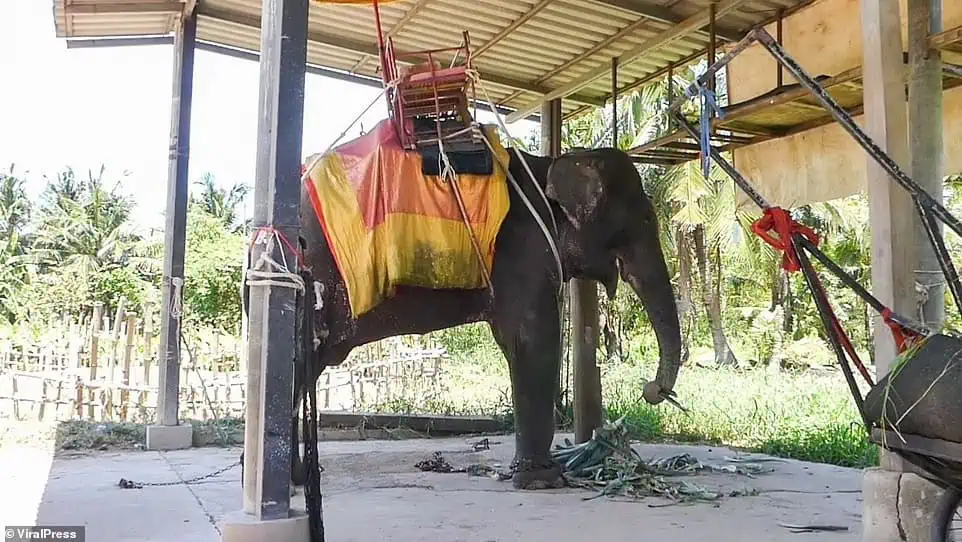
By June 18, word of the elephants’ condition reached the Department of Livestock Development (DLD). Officials arrived at the camp, unchained the elephants, and immediately began health checks.
The animals, though weak and malnourished, were still alive.
A DLD spokesperson later confirmed, “We found the elephants restrained with chains and warned the camp management that such practices cannot continue. If they do, legal action will follow under Thailand’s animal protection laws.”
Authorities also revealed that the camp’s owners blamed the chaining on a lack of staff. “Due to financial hardship, we had to lay off mahouts,” said Thavorn Parnkaew, one of the camp workers.
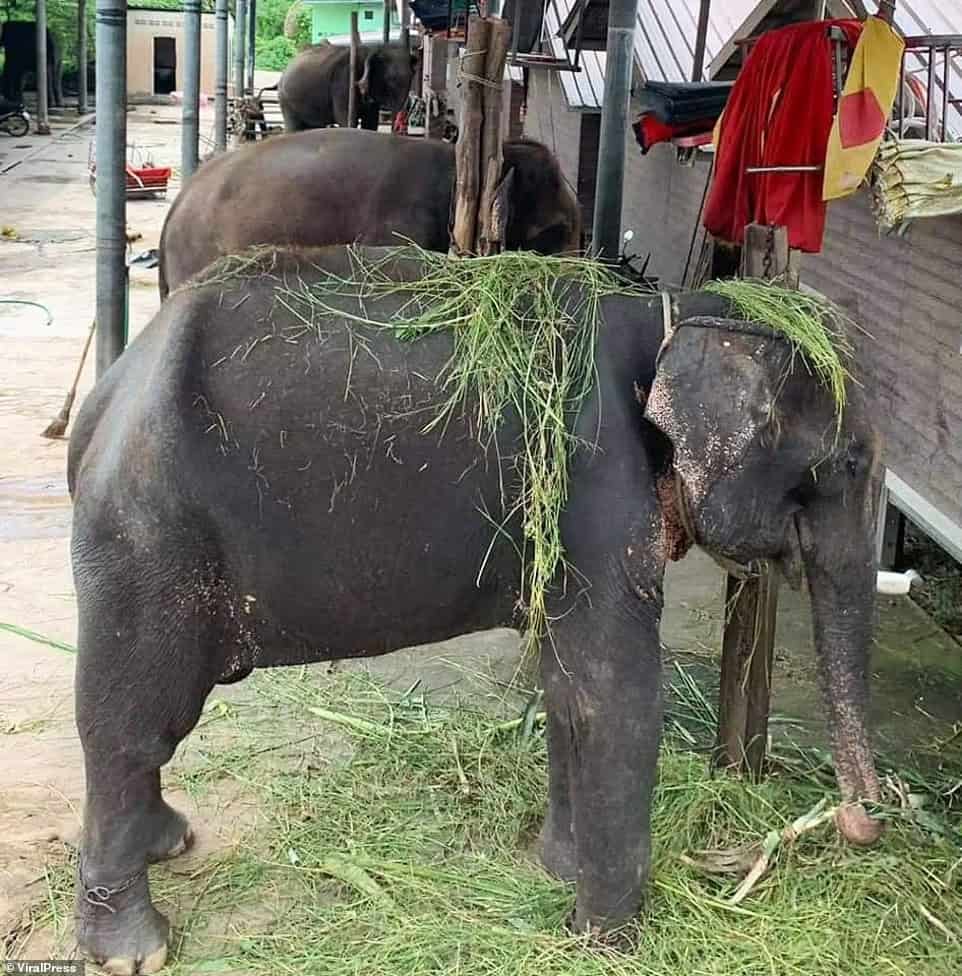
“We didn’t have enough people to care for them properly. We understand this was wrong and will ensure it never happens again.”
But for many, the apology wasn’t enough.
Animal rights organizations, including People for the Ethical Treatment of Animals (PETA), have long condemned Thailand’s elephant tourism industry. To them, this latest case wasn’t an isolated tragedy — it was proof of systemic neglect.
“Elephant camps that profit from animal suffering should immediately relocate their elephants to sanctuaries,” said Jason Baker of PETA.
“The pandemic has shown us what happens when profit is prioritized over compassion. These intelligent, sensitive animals deserve to live free from chains.”
Sadly, this was not the only story of suffering.

Earlier in the year, a 50-year-old elephant named Khun Pan was found emaciated and near death at a tourist camp in Chonburi. His ribs showed through his skin, and sores covered his legs.
Rescuers from Thailand’s wildlife department intervened just in time, providing treatment, food, and hydration. He survived — barely.
Khun Pan’s rescue and the plight of the Ratchaburi elephants reveal an uncomfortable truth: even in a country where elephants are revered as symbols of wisdom and national pride, thousands remain in captivity, tethered to an industry that often values spectacle over welfare.
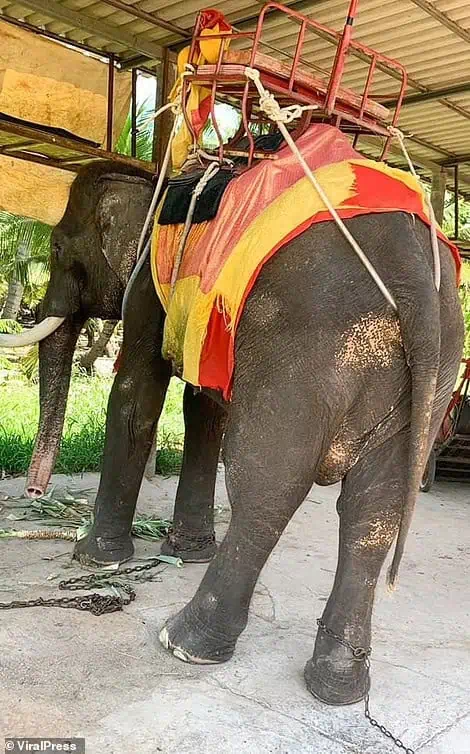
Thailand is home to roughly 2,000 wild elephants and another 2,000 living in camps, zoos, and private facilities.
Many of these animals depend entirely on tourism for survival. When the world stopped visiting, their keepers had no way to feed them — and the elephants, in turn, paid the price.
Today, Thai law provides protection for elephants, with penalties of up to three years in prison or a fine for abuse. Yet enforcement remains inconsistent, and the deeper issue — the commercialization of elephants as tourist attractions — persists.
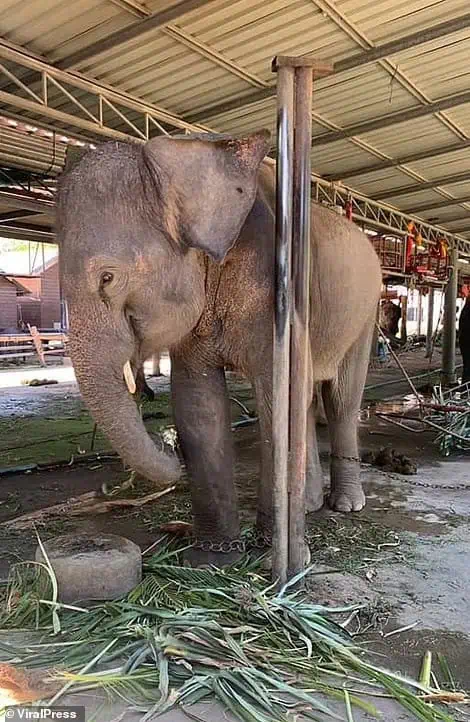
As travel returns and tourists begin to trickle back, the question remains: will Thailand’s elephants be treated with the respect they deserve, or will history repeat itself the next time the money runs out?
For the three elephants at Chang Puak Camp, freedom is fragile. The chains are gone, but their story lingers as a haunting reminder of what neglect looks like — and of the quiet, ongoing fight to protect creatures who cannot speak for themselves.
Because in the silence of that camp, beneath the weight of metal and sorrow, the truth is impossible to ignore: even the strongest giants can fall when the world forgets them.
